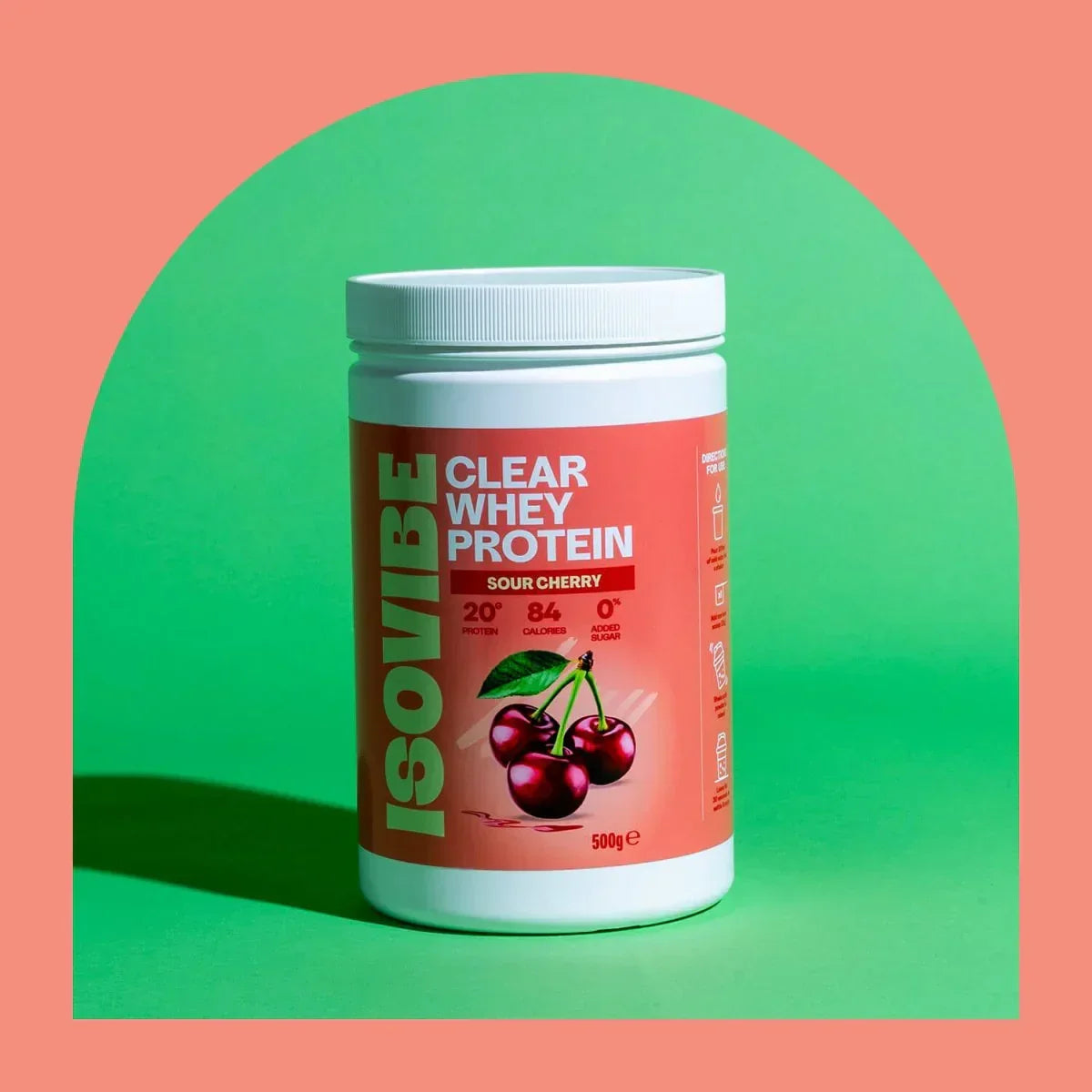Protein for Endurance vs Strength Training: What's Best for You?
Do You Need Different Protein for Running vs. Lifting?
Short answer: yes. The amount of protein your body needs actually shifts depending on whether you’re out clocking miles or crushing weights, and recent research has flipped the script on how we think about protein requirements for different types of training.
Protein isn’t just about building muscle. It also plays a role in supporting your immune system, repairing tissues, balancing blood sugar, and making sure you actually bounce back from your workouts. Every time you train, whether it’s a long run or a heavy lifting day, you’re creating tiny tears in your muscles that need proper nutrition to heal. That’s where protein steps up.
The type of training you do, how hard you go, and what your goals are all shape how much protein you should be getting and when you should be taking it. Dial this in and you’ll recover faster, see results sooner, and feel way stronger in every session.
How Protein Actually Works in Your Body When You Train
Protein isn’t just for gains… It’s doing way more behind the scenes. When you work out, your body starts breaking down muscle proteins and burning amino acids for energy, especially if you’re doing longer cardio sessions. Add in those microscopic muscle fibre tears from training, and suddenly your protein needs go way up. That’s why what you eat around your workout matters.
Right after exercise, your muscles flip into sponge mode and they’re extra sensitive to amino acids for about 2–3 hours. This phase, often called the “anabolic window,” is when your body uses protein most efficiently to repair and rebuild.
But here’s the twist: your body responds differently depending on the type of training. Cardio ramps up protein breakdown and amino acid use for fuel, while strength training sparks a bigger push toward building new muscle proteins. That means your protein approach shouldn’t be one-size-fits-all. What works best on a run won’t look the same as what you need after a heavy lifting session.
Protein for Cardio and Endurance Training
If you’re hitting regular cardio, your protein needs shoot way above the standard recommendations. Women training moderately to intensely 4-5 times a week should aim for 1.2-1.6g of protein per kilo of bodyweight daily⁷. For a 60kg woman, that’s around 72-96g of protein every day. And if you’re going all-in with half-marathon prep or other high-intensity endurance goals, that target climbs to 1.8-2.0g/kg. Compare that to the 0.8g/kg recommended for inactive women, and you can see how much cardio really changes the game for protein metabolism and recovery.
Timing matters too. The sweet spot is within an hour of finishing your cardio - around 15-25g of protein to help your muscles bounce back and restore energy⁴. For best results, pair it with carbs in a 3-4:1 carb-to-protein ratio¹². That combo restocks muscle glycogen way more effectively than protein alone, helping you recover faster and reduce fatigue for your next session.
The key is balance. Protein is essential, but going too heavy on it at the expense of carbs can actually backfire. Carbs are still your body’s main fuel for running, cycling, and endurance work¹².
Think of protein as your recovery partner, while carbs are the fuel that keep you moving.
Protein for Strength Training
Strength training puts your muscles under serious stress, and your protein needs rise to match. For optimal muscle building, most women should aim for about 1.6-1.7g of protein per kilo of body weight daily.
That means if you weigh 65kg, you’re looking at roughly 104-110g per day. Going far beyond this won’t add extra benefits, so think “enough,” not “more is always better.”
If you’re new to lifting or only strength training occasionally, starting around 1.2g/kg is plenty. As you get more consistent, or if your sessions get more intense, you can gradually push your intake higher.
Women over 40 should aim for the upper ranges of 1.4-1.7g/kg since the body becomes less efficient at using protein for muscle growth with age. Adjusting your intake as your body changes helps you keep making progress at every stage of life.
Timing It Right
Protein timing makes a big difference in strength training. Aim to get 25-40g of protein within 2 hours of finishing your workout. This window is when your muscles are most sensitive to nutrients, and it maximises muscle protein synthesis.
The old myth that you can only absorb 20-30g at once? Totally outdated. Women over 40 should target 25-35g in that window, while younger women can go up to 40g without worry. A post-lift snack could be a protein shake, Greek yogurt with nuts, or a full meal with lean meat, fish, or plant-based protein.
Cardio + Strength Combo
If you’re mixing cardio and lifting in your weekly routine, your protein needs will be on the higher end and around 1.6-2.0g/kg daily¹⁹.
For a 60kg woman, that’s about 96-120g. When both workouts happen on the same day, prioritise protein after your strength session, since muscle repair is especially sensitive to timing.
Choosing Your Protein Sources
Fast-absorbing proteins like whey are ideal post-workout because they deliver amino acids quickly to your muscles. But if a heavy shake feels unappealing after a sweaty session, clear whey protein is the lighter, refreshing alternative that still packs in high-quality protein.
Beyond supplements, the best protein is the one you’ll actually eat consistently. Lean meats, fish, eggs, Greek yogurt, lentils, tofu, or quinoa all fit the bill. What matters most is regular intake across your day.
Protein Myths That Need to Go
Let’s clear up a few common misconceptions. “Protein makes you bulky” - false. Women don’t have the testosterone levels needed to build bulky muscle; protein simply helps you get stronger, more toned, and defined¹⁰.
“You can only absorb 20 grams at once” is also wrong. Research shows the body effectively uses 25-40 grams in one go, and anything extra still supports overall health¹⁶.
“Cardio doesn’t need protein” is totally outdated. Cardio actually increases protein breakdown and raises your needs, sometimes even more than lifting⁷.
And finally, “High protein hurts your kidneys” - there’s zero evidence for this in healthy women¹⁶. Even very high intakes have been shown to be safe.
Daily Implementation Made Simple
The best results come from spreading protein evenly across your day rather than cramming it all into dinner. A sample day might look like:
-
Breakfast: 20-25g protein (Greek yogurt with berries, eggs with toast, or a smoothie)
-
Mid morning: 10-15g protein (clear whey protein shake)
-
Lunch: 25-30g protein (chicken salad, lentil soup with bread, tofu stir-fry)
-
Post-Workout: 25-35g protein within two hours
-
Dinner: 25-30g protein (fish with vegetables, bean-based meal, or lean meat)
What to Remember
Both cardio and strength training push your protein requirements above the baseline, but for different reasons. Cardio needs protein for recovery and energy restoration, while strength training needs it for muscle building and repair.
Doing both means aiming higher overall. Focus on consistency, time your intake around your hardest workouts, and choose protein sources you enjoy eating. Then adjust based on your age, training style, and goals. At the end of the day, your body will let you know what’s working.
References
³ World Health Organization. Protein and amino acid requirements in human nutrition. WHO Technical Report Series, 2007.
⁴ Aragon, A. A., & Schoenfeld, B. J. (2013). Nutrient timing revisited: is there a post-exercise anabolic window? Journal of the International Society of Sports Nutrition, 10(1), 5.
⁷ Houltham, S. D., & Rowlands, D. S. (2014). A snapshot of nitrogen balance in endurance-trained women. Applied Physiology, Nutrition, and Metabolism, 39(2), 219-225.
¹⁰ Roberts, B. M., et al. (2020). Sex differences in resistance training: a systematic review and meta-analysis. Journal of Strength and Conditioning Research, 34(5), 1448-1460.
¹² Pasiakos, S. M., & McLellan, T. M. (2014). The effects of protein supplements on muscle mass, strength, and aerobic and anaerobic power in healthy adults: a systematic review. Sports Medicine, 44(6), 763-784.
¹⁶ Antonio, J., et al. (2016). The effects of consuming a high protein diet (4.4 g/kg/d) on body composition in resistance-trained individuals. Journal of the International Society of Sports Nutrition, 13, 3.
¹⁷ Helms, E. R., et al. (2014). Evidence-based recommendations for natural bodybuilding contest preparation: nutrition and supplementation. Journal of the International Society of Sports Nutrition, 11(1), 20.
¹⁸ Phillips, S. M., & Van Loon, L. J. (2011). Dietary protein for athletes: from requirements to optimum adaptation. Journal of Sports Sciences, 29(S1), S29-S38.
¹⁹ Fyfe, J. J., et al. (2016). The role of dietary protein in optimizing muscle mass, function and health outcomes in older individuals. Nutrients, 8(4), 181.
²⁰ Bauer, J., et al. (2013). Evidence-based recommendations for optimal dietary protein intake in older people. Journal of the American Medical Directors Association, 14(8), 542-559.




